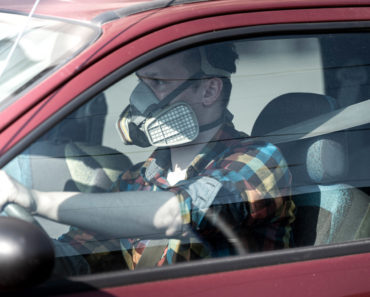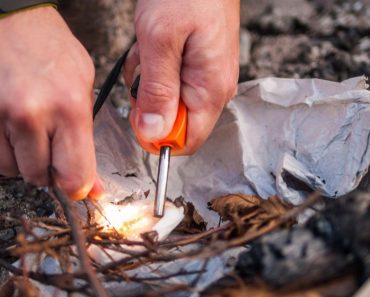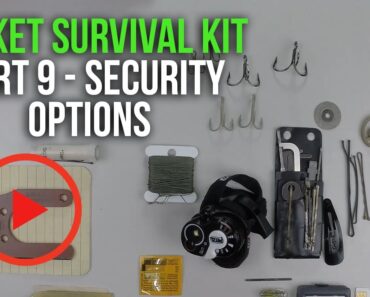Whether you’ve been a prepper for years or you’re just getting into it, you likely spend a lot of time outdoors, enjoying everything nature has to offer to keep you safe and sustained. But, there’s one thing we can all probably agree on – no one wants to deal with annoying or dangerous insects when they’re outside.
There are plenty of reasons to love certain bugs. Without bees, we’d have no food. Mosquitoes are pollinators, too. Spiders kill and eat bugs to keep the population down. Ants aerate the soil and disperse the seeds of native plants. It’s hard to find a bug without some type of purpose.
But, that doesn’t mean you want to deal with them buzzing around your head, stinging, biting, or swarming when you’re trying to spend some time outside. Thankfully, there are preparedness tips you can put in place to keep bugs away. You don’t necessarily have to focus on “getting rid” of insects to make sure they don’t bother you. Let’s cover a few of those tips so you can enjoy spending more time outside, especially in the summer, without having to worry about the effects of a swarm or infestation.
1. Weigh the Pros and Cons
Spending time outside is good for your mental and physical health. As a prepper, you’ll need to know the lay of the land, and how to survive in nature if a disaster ever strikes. So, spending as much time outside as possible now will benefit you in the present and future. One of the best ways to enjoy those benefits is to simply take a walk. There are countless benefits to walking daily, including:
- Stronger muscles
- Boosted energy
- Maintained bone strength
- Weight management
- Better sleep
- Boosted immunity
- Less joint pain
Outdoor physical activity can also help to reduce stress and improve your mood. It’s a great way to stay in shape while managing your mental well-being, too. It’s hard to find a drawback that beats that!
But, it’s never a good idea to spend time outside without knowing what you might be up against. Taking a walk around the neighborhood is one thing. But, if you’re going to be exploring wooded areas, fields, or other rough terrain, understand that you could run into rodents, snakes, and plenty of insects. While that’s not necessarily a bad thing, you’ll need to mentally and physically prepare yourself for dealing with those things before you hit the hiking trail.
2. Learn Insect Habits
One of the best ways to make the most of your outdoor time is to educate yourself on when bugs are most active. A lot of it depends on where you live, but you can plan some of your outdoor excursions on when you’re least likely to run into buzzing pests.
For example, you might want to spend more time outdoors in the fall when the weather starts to cool off and you’re not sweltering in the heat. If you do, though, you should be prepared to see plenty of stink bugs and ladybugs. While neither bug is harmful, stink bugs have a reputation for leaving an unpleasant odor behind, and that’s not what you want sticking with you when you head back inside.
Spring and summer are obviously the worst for insects. Mosquitos, ants, and flies start to come back in the spring, and ticks, spiders, and stinging insects will be wandering around all summer. Those can be downright dangerous if you get bitten or stung. Ticks and some spiders can even cause illness or disease.
If you want to avoid bugs completely, spend as much time outside as possible in the winter. But, that might not be realistic for your plans. So, educate yourself on which types of bugs to expect at certain times of year, and mentally prepare yourself for how to stay safe if you see them.
3. Prepare Yourself With the Right Gear
No matter when you decide to head outside, you’ll want to dress appropriately. Obviously, dressing for the season is important. Making sure you’re wearing layers in the fall and winter months will help you to stay warm and allow you to safely remain outdoors longer. But, if you’re trying to avoid getting bitten or stung by bugs in the spring or summer, you also have to think about how your clothes might protect you.
If you’re hiking, try to wear long pants, and tuck the legs into your socks or shoes. This will prevent bugs like ants or ticks from crawling up your leg and potentially biting. The last thing you want is to discover a tick on your calf hours later when it’s already had the chance to start burrowing.
You should also wear a tucked-in long-sleeve shirt for the same reason, and even a hat to prevent ticks from falling on your head and hiding in your hair.
If all of that sounds like it would be a bit warm, well…you’re right! That’s why it’s important to wear lightweight, moisture-wicking clothing whenever possible.
When you’re spending the night outdoors, everything from the gear in your backpack to the material of your tent matters for bug prevention. Some of the best things to pack include:
- Bug nets
- Bug gloves
- A canvas tent
- Insect repellent
Whether you’re on an hour-long hike or a deep-woods camping excursion, your goal should always be to protect yourself from exposure, whether that means tucking in all of your clothes or ridding your tent of any small holes.
4. Use DIY Insect Repellents
There are countless insect repellents you can buy online or at your local big box store. If you’ve ever walked down that aisle, you might even feel a bit overwhelmed by the variety. There’s nothing wrong with many of those options, but if you’re worried about the safety of your pets, your kids, or the environment, you might be better off making your own natural insect repellent.
It’s easier than you might think, and you can feel good about the ingredients.
One of the best ways to keep bugs away is to know which scents deter them, including peppermint, citronella, and lemongrass. You can mix these scents with essential oils to create a natural repellent or use candles around your campsite or even your backyard to keep them from buzzing around.
Avoid sweet-smelling fragrances or anything that might smell like flowers or fruit in your formula. Bugs will instantly be attracted to those scents and while you might smell good, you’ll also attract a swarm of irritating insects.
5. Attract the Right Predators
Some bugs and other natural predators can do a lot of work for you, especially if you have a garden. Growing your own vegetables and herbs is a great way to reduce reliance on supply chains and practice more “off-the-grid” living. It also gives you the opportunity to can your own produce with a long shelf life and to put together herbal remedies for different illnesses or injuries.
Needless to say, you should do whatever you can to protect your garden, and some useful bugs can help. If you see ladybugs, for example, leave them alone! They eat mites and aphids. They’re attracted to dill and fennel, so plant some in your garden and welcome these friendly-looking insects. Other insects that can help to protect your garden include:
- Dragonflies
- Damsel bugs
- Tachinid flies
- Spiders (not technically an insect, but you get the idea)
Be sure to educate yourself on different insect varieties so you can determine which bugs are spending time in your garden and whether they’re helpful or hurtful.
If you don’t want to attract more bugs to your garden, consider some other outdoor predators that will eat bugs, like birds, frogs, and toads. If you want to attract other non-harmful wildlife that can control the bug population, make sure your garden is a diverse environment with plenty of colors and a water source.
6. Don’t Bring Bugs In
If you’re spending a lot of time outside, you might not always be able to avoid the occasional insect latching onto your clothes or climbing into your hair. Even opening and closing the door to your home multiple times a day leaves it vulnerable for insects to fly or crawl in.
The last thing you want is to find an infestation of insects in your home when you’ve worked so hard to protect yourself outdoors. So, prepare your living space and protect it against bugs by making sure it’s as clean as possible. Don’t leave food sitting around, and make sure there are no spills in your cupboards and cabinets.
To keep pests like ants outside, sprinkle a line of cayenne pepper around your property – they won’t cross it!
If you do start to see more insects coming in, try natural remedies like garlic (they don’t like the smell!) to keep them away, or fill a spray bottle with water and two tablespoons of dishwashing liquid. Spray flying insects as you see them. The solution dries out their exoskeleton and kills them.
7. Light a Fire
Whether you’re trying to relax in the backyard after a long day or you want to keep yourself warm and heat up some dinner while camping, there are plenty of reasons to light a fire. It’s a useful skill for just about any season. In the summer and spring, a fire can provide a source of light and serve as a way to cook food and make safe water. In the fall and winter, it can provide a necessary warmth if you’re stuck out in the cold for an extended period of time.
As a bonus, fire is also a great way to keep bugs away.
Have you ever stood downwind of a burning campfire and gotten smoke in your eyes? The stinging sensation can be painful and cause your eyes to water for several minutes. Bugs don’t like smoke, either. It masks other scents. When you’re standing near a fire, any bugs nearby will likely only pick up on the smoke and not you, so they’ll be less likely to hang around. They also instinctually stay away from flames, since they literally can’t handle the heat.
The smoke and heat create a harsh environment for many insects – especially mosquitoes. It’s not worth it for them to linger around or try to see what they can find to eat when they risk getting disoriented or burned. So, they’ll tend to stay away as long as you have a fire burning. Enjoy your s’mores in peace.
There are so many other outdoor tips and ideas you can use to prepare yourself for dealing with bugs. Remember, when you’re outside, you’re in their home. It might feel like they’re invading your space, but you’re really stepping into theirs.
That doesn’t mean you should be okay with a swarm or let yourself get bitten or stung. But, take these preparedness tips with a grain of salt. There will always be millions of insects outside, and instead of focusing on how you can get rid of them, consider how you can protect yourself while you spend time around them.



![Bartering To Survive With Creek Stewart [PODCAST] Bartering To Survive With Creek Stewart [PODCAST]](https://survivalcove.com/wp-content/uploads/2021/09/The-survival-show-podcast-banner-370x297.jpg)
























